Anpassungsfähigkeit und Resilienz des Finanzsystems
Diese Forschungsgruppe untersucht kritische Aspekte der Anpassungsfähigkeit und Widerstandsfähigkeit von Finanzsystemen. Sie analysiert die Auswirkungen von Naturkatastrophen auf Finanzsysteme, die Auswirkungen politischer Präferenzen für die grüne Transformation und die Bedeutung von Kultur in den Volkswirtschaften.
Forschungscluster
Finanzresilienz und RegulierungIhr Kontakt

- Abteilung Finanzmärkte
PROJEKTE
08.2022 ‐ 07.2025
OVERHANG: Schuldenüberhang und grüne Investitionen – die Rolle von Banken für den klimafreundlichen Umgang mit emissionsintensiven Anlagenvermögen
Bundesministerium für Bildung und Forschung (BMBF)
Ziel von OVERHANG ist es, die Rolle von Banken für den klimafreundlichen Umgang mit emissionsintensiven Anlagevermögen zu untersuchen. Hierdurch sollen politikrelevante Erkenntnisse zu Finanzregulierung, staatlich kontrollierter Kreditvergabe und Finanzstabilität identifiziert sowie eine Sensibilisierung der verschuldeten Akteurinnen und Akteuren erreicht werden.
Das Projekt wird vom Bundesministerium für Bildung und Forschung (BMBF) finanziert.
01.2015 ‐ 12.2019
Interactions between Bank-specific Risk and Macroeconomic Performance
Deutsche Forschungsgemeinschaft (DFG)
07.2016 ‐ 12.2018
Relationship Lenders and Unorthodox Monetary Policy: Investment, Employment, and Resource Reallocation Effects
Leibniz-Gemeinschaft
We combine a number of unique and proprietary data sources to measure the impact of relationship lenders and unconventional monetary policy during and after the European sovereign debt crisis on the real economy. Establishing systematic links between different research data centers (Forschungsdatenzentren, FDZ) and central banks with detailed micro-level information on both financial and real activity is the stand-alone proposition of our proposal. The main objective is to permit the identification of causal effects, or their absence, regarding which policies were conducive to mitigate financial shocks and stimulate real economic activities, such as employment, investment, or the closure of plants.
Referierte Publikationen

Banking Reform, Risk-Taking, and Accounting Quality: Evidence from Post-Soviet Transition States
in: Journal of International Accounting Research, Nr. 1, 2022
Abstract
The drastic banking reform within Central and Eastern Europe following the collapse of the Soviet Union provides an ideal quasi-experimental design to examine the causal effects of institutional development on accounting quality (AQ). We find that banking reform spurs significant improvement in predictive power of earnings and reductions in earnings smoothing, earnings-inflating discretionary provisions, and avoidance of reporting losses. These effects hold under alternative model specifications and after considering concurrent institutional developments. In contrast, corporate reform shows no such effects, refuting the alternative explanation that unobserved factors affect both reform speed in general and the quality of financial reporting. We further identify four specific reformative actions that are integral to the drastic banking reform process where prudential regulation contributes the most to the observed AQ improvement. It supports the conjecture that banking reform improves AQ by reducing banks' risk-taking behaviors and, as a result, their motive behind accounting manipulation.
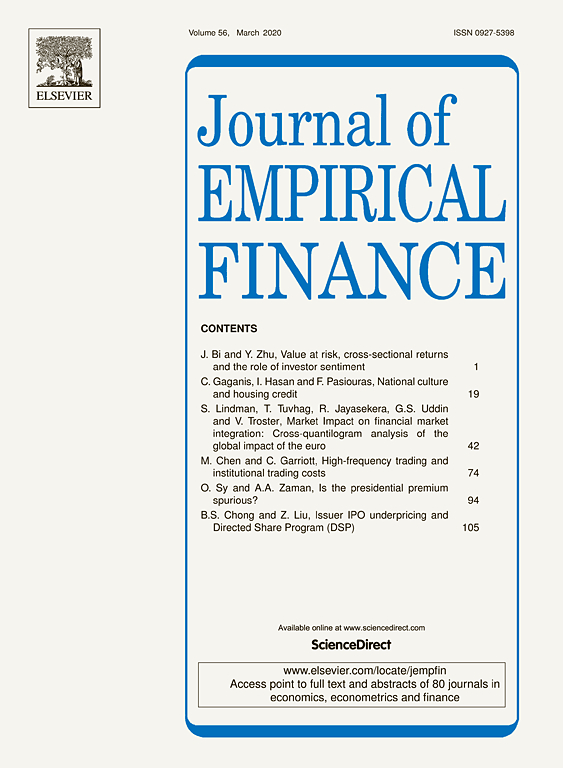
Income, Trading, and Performance: Evidence from Retail Investors
in: Journal of Empirical Finance, March 2022
Abstract
We examine whether household income influences the trading styles of retail investors and their investment performance. To investigate this question, we use a unique dataset of branch-level trading that contains all retail investors and observe that those investors with high income trade more and earn significantly higher returns in the stock market. In addition, this income effect becomes stronger for highly risky stocks, such as gambling or lottery-like stocks. These findings are in line with the information model theorized by Peress (2004) in which wealthy investors take extra risks by trading more stocks.

Understanding Climate Activism: Who Participates in Climate Marches Such As “Fridays for Future” and What Can We Learn from It?
in: Energy Research and Social Science, February 2022
Abstract
Young people are marching around the globe to ask for measures against climate change and to protect the environment. Using novel survey data, we ask who participates in such powerful movements and what can be learned from our findings. The survey was conducted in German and is based on answers from more than 600 participants. We find that survey respondents are less likely to participate in climate marches like “Fridays for Future” in case they trust more in (large) corporations suggesting a link between trust and climate activism. We also ask whether worries about climate change or attitudes towards more environmentally friendly behavior match their participation frequency in climate marches. Results reveal that respondents being more worried about climate change or the environment tend to participate more often in marches addressing these concerns. Similarly, participation in climate marches correlates positively with acting environmentally sustainable. Hence, our findings might be relevant for corporations in case they want to keep the support of young customers participating in climate marches.
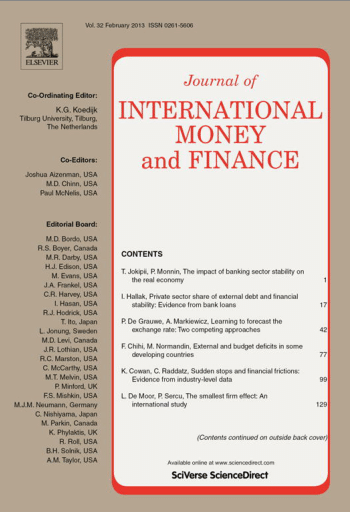
The Diplomacy Discount in Global Syndicated Loans
in: Journal of International Money and Finance, February 2022
Abstract
This paper investigates whether state-to-state political ties with the United States affect the pricing of global syndicated loans. We find that a one-standard-deviation improvement in state political ties between the U.S. and the government of a borrower’s home country is associated with a 14.7 basis points lower loan spread, shaving off about 11.8 million USD in interest payments over the duration of the average loan for borrowers. Results also show that the effect of political ties is stronger for narrower and more concentrated loan syndicates, when lead arrangers are U.S. banks, during periods in which the U.S. is engaged in armed conflicts, when the U.S. president belongs to the Republican Party, and for borrowers with better balance sheets and prior lending relationships. Notably, not all firms benefit equally, as cross-listed firms and firms in countries with strong institutional quality and ability to attract institutional investors are much less affected by political ties.
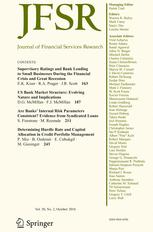
Political Uncertainty and Bank Loan Contracts: Does Government Quality Matter?
in: Journal of Financial Services Research, December 2021
Abstract
We investigate the relation between political uncertainty and bank loan spreads using a sample of loan contracts for the G20 firms during the period from 1982 to 2015. We find that banks charge firms higher loan spreads and require more covenants during election years when domestic political risks are elevated. Greater differences in the support ratios of opinion polls on candidates lead to the lower cost of bank loans. This political effect also lessens when the government quality of the borrower’s country is better than that of the lender’s country. Better quality government can lower the political risk component of bank loan spreads.
Arbeitspapiere
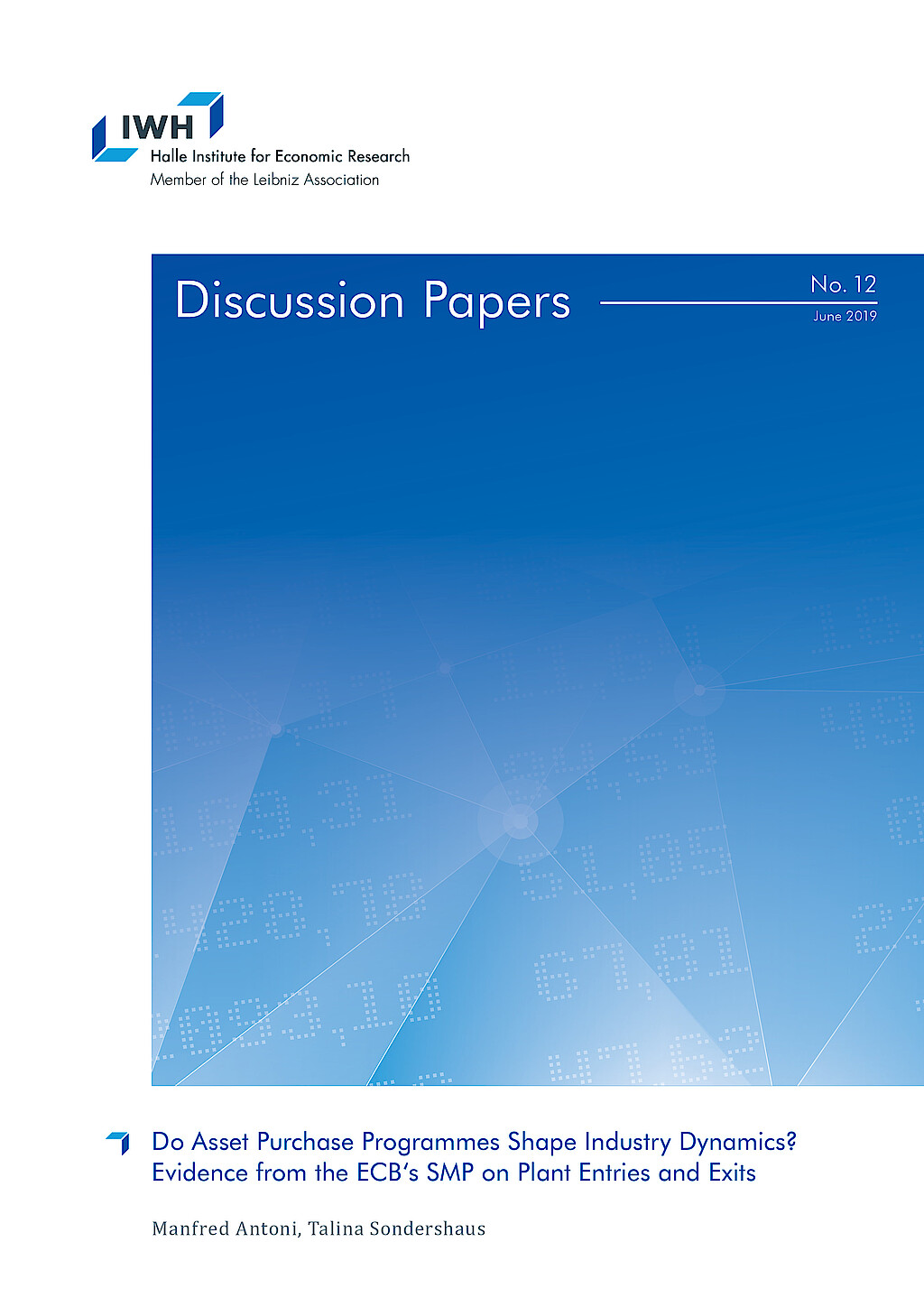
Do Asset Purchase Programmes Shape Industry Dynamics? Evidence from the ECB's SMP on Plant Entries and Exits
in: IWH Discussion Papers, Nr. 12, 2019
Abstract
Asset purchase programmes (APPs) may insulate banks from having to terminate relationships with unproductive customers. Using administrative plant and bank data, we test whether APPs impinge on industry dynamics in terms of plant entry and exit. Plants in Germany connected to banks with access to an APP are approximately 20% less likely to exit. In particular, unproductive plants connected to weak banks with APP access are less likely to close. Aggregate entry and exit rates in regional markets with high APP exposures are also lower. Thus, APPs seem to subdue Schumpeterian cleansing mechanisms, which may hamper factor reallocation and aggregate productivity growth.

‘And Forgive Us Our Debts’: Do Christian Moralities Influence Over-indebtedness of Individuals?
in: IWH Discussion Papers, Nr. 8, 2019
Abstract
This paper analyses whether Christian moralities and rules formed differently by Catholics and Protestants impact the likelihood of households to become overindebted. We find that over-indebtedness is lower in regions in which Catholics outweigh Protestants, indicating that Catholics‘ forgiveness culture and a stricter enforcement of rules by Protestants serve as explanations for our results. Our results provide evidence that religion affects the financial situations of individuals and show that even 500 years after the split between Catholics and Protestants, the differences in the mind-sets of both denominations play an important role for situations of severe financial conditions.
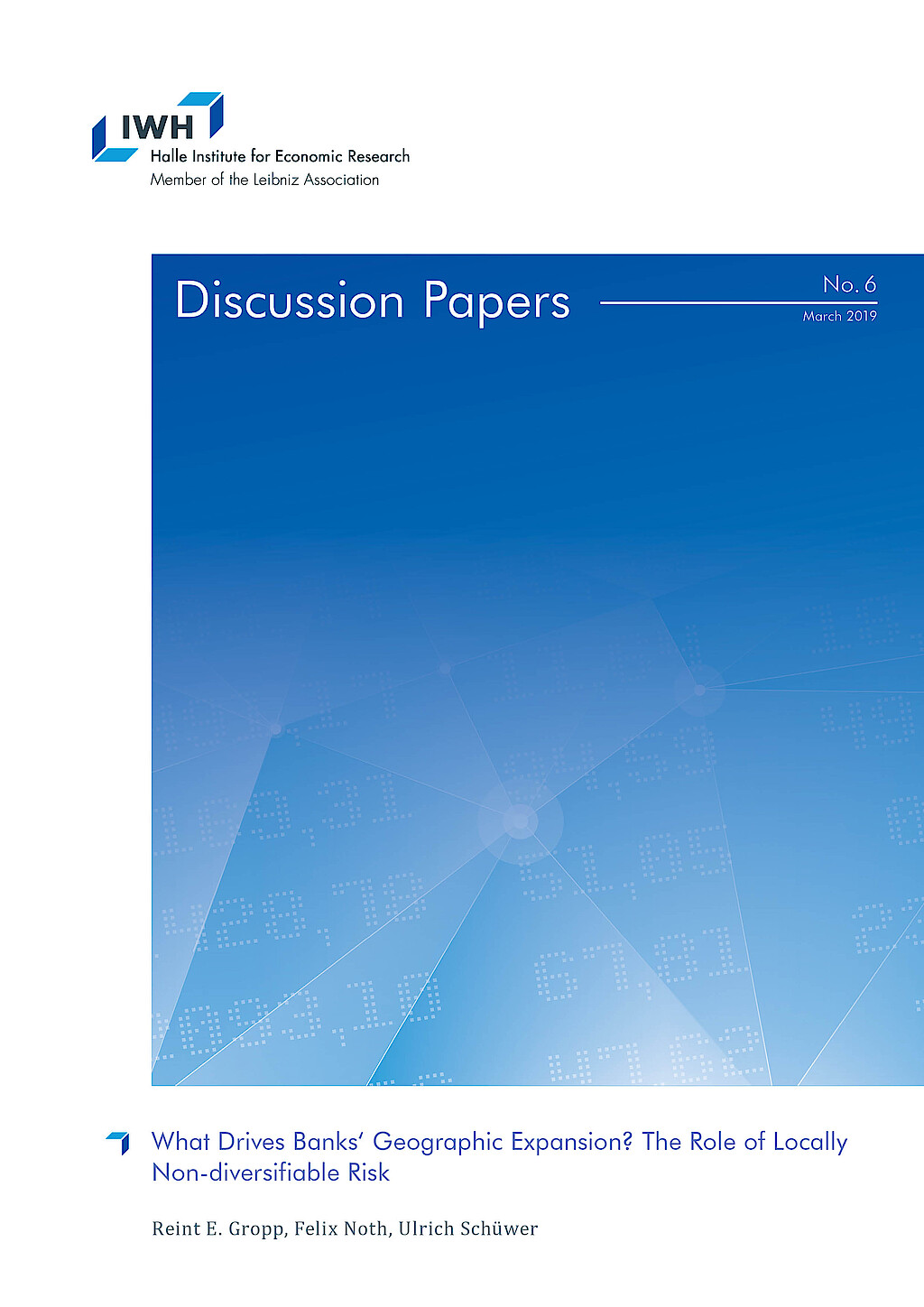
What Drives Banks‘ Geographic Expansion? The Role of Locally Non-diversifiable Risk
in: IWH Discussion Papers, Nr. 6, 2019
Abstract
We show that banks that are facing relatively high locally non-diversifiable risks in their home region expand more across states than banks that do not face such risks following branching deregulation in the 1990s and 2000s. These banks with high locally non-diversifiable risks also benefit relatively more from deregulation in terms of higher bank stability. Further, these banks expand more into counties where risks are relatively high and positively correlated with risks in their home region, suggesting that they do not only diversify but also build on their expertise in local risks when they expand into new regions.

Politics, Banks, and Sub-sovereign Debt: Unholy Trinity or Divine Coincidence?
in: Deutsche Bundesbank Discussion Paper, Nr. 53, 2018
Abstract
We exploit election-driven turnover in State and local governments in Germany to study how banks adjust their securities portfolios in response to the loss of political connections. We find that local savings banks, which are owned by their host county and supervised by local politicians, increase significantly their holdings of home-State sovereign bonds when the local government and the State government are dominated by different political parties. Banks' holdings of other securities, like federal bonds, bonds issued by other States, or stocks, are not affected by election outcomes. We argue that banks use sub-sovereign bond purchases to gain access to politically distant government authorities.
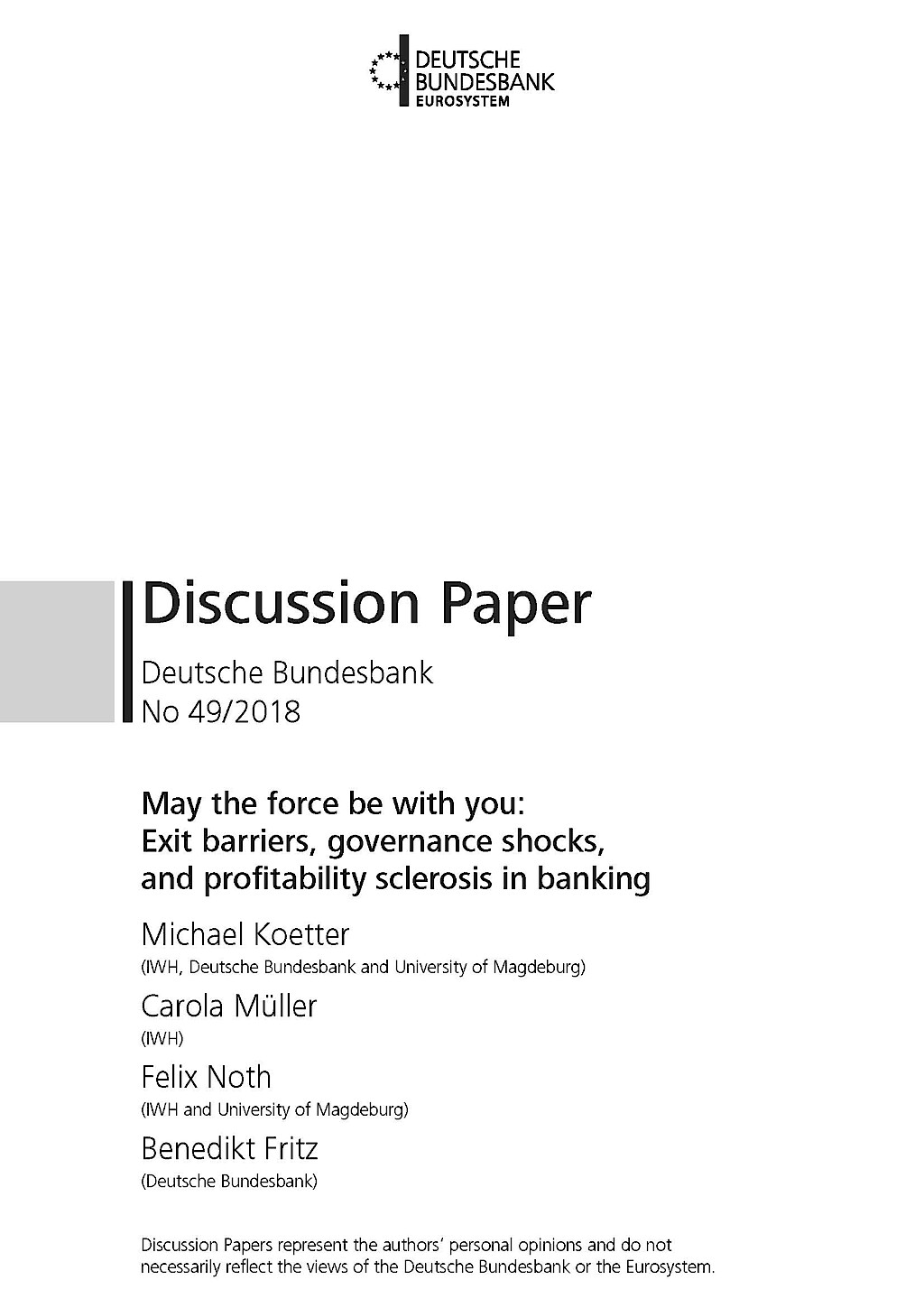
May the Force Be with You: Exit Barriers, Governance Shocks, and Profitability Sclerosis in Banking
in: Deutsche Bundesbank Discussion Paper, Nr. 49, 2018
Abstract
We test whether limited market discipline imposes exit barriers and poor profitability in banking. We exploit an exogenous shock to the governance of government-owned banks: the unification of counties. County mergers lead to enforced government-owned bank mergers. We compare forced to voluntary bank exits and show that the former cause better bank profitability and efficiency at the expense of riskier financial profiles. Regarding real effects, firms exposed to forced bank mergers borrow more at lower cost, increase investment, and exhibit higher employment. Thus, reduced exit frictions in banking seem to unleash the economic potential of both banks and firms.



















